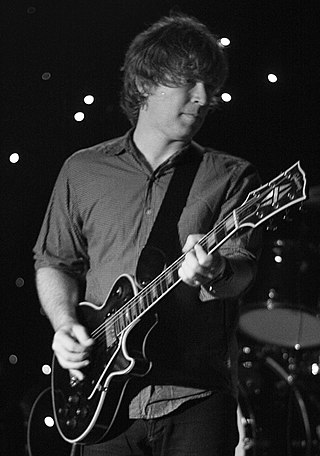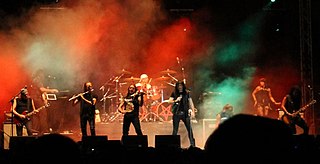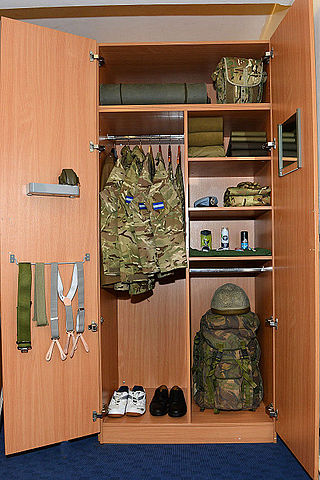
Nada Surf is a New York City-based American alternative rock band formed in the 1990s, consisting of Matthew Caws, Ira Elliot (drums), Doug Gillard, and Daniel Lorca.

Yo La Tengo is an American indie rock band formed in Hoboken, New Jersey, in 1984. Since 1992, the lineup has consisted of Ira Kaplan, Georgia Hubley, and James McNew. In 2015, original guitarist Dave Schramm rejoined the band and appeared on their fourteenth album, Stuff Like That There.

"Zombie" is a protest song by Irish alternative rock band the Cranberries, written by the band's lead singer Dolores O'Riordan about The Troubles in Northern Ireland. It was released on 19 September 1994 as the lead single from their second studio album, No Need to Argue (1994), two weeks ahead of the album's release. Music critics have long recognised "Zombie" as "a masterpiece of alternative rock", as well as a grunge number uncharacteristic of the band's other work.
In the music of Ireland, Irish rebel songs refer to folk songs which are primarily about the various rebellions against English Crown rule. Songs about prior rebellions are a popular topic of choice among musicians which supported Irish nationalism and republicanism. In the 20th and 21st centuries, Irish rebel songs focus on physical force Irish republicanism in the context of the Troubles in Northern Ireland.

The Wolfe Tones are an Irish rebel music band that incorporate Irish traditional music in their songs. Formed in 1963, they take their name from Theobald Wolfe Tone, one of the leaders of the Irish Rebellion of 1798, with the double meaning of a wolf tone – a spurious sound that can affect instruments of the violin family.

Mägo de Oz are a Spanish folk metal band from Begoña, Madrid formed in mid-1988 by drummer Txus di Fellatio. The band became well known for the strong Celtic feel to their music strengthened through their consistent usage of a violinist and flautist. The name for the band was chosen, according to founding member Txus, because "life is a yellow brick road, on which we walk in the company of others searching for our dreams." On the 26th of October, 2018, the band played a special concert to celebrate their 30th anniversary, playing with a symphony orchestra at the WiZink Center in Madrid.
The lyrics to the song The Mountains of Mourne were written by Irish musician Percy French (1854–1920). The music was adapted by Houston Collisson (1865–1920) from the traditional Irish folk tune "Carrigdonn" or "Carrigdhoun". The latter had been similarly used by Thomas Moore (1779–1852) for his song Bendemeer's Stream.
"The Patriot Game" is an Irish ballad with lyrics by Dominic Behan and a melody from the traditional tune "One Morning in May", first released in 1958.

"Lovesong" is a song by English rock band the Cure, released as the third single from their eighth studio album, Disintegration (1989), on 21 August 1989. The song saw considerable success in the United States, where it reached the number-two position in October 1989 and became the band's only top-10 entry on the Billboard Hot 100. In the United Kingdom, the single charted at number 18, and it peaked within the top 20 in Canada and Ireland.
"The Unquiet Grave" is an English folk song in which a young man's grief over the death of his true love is so deep that it disturbs her eternal sleep. It was collected in 1868 by Francis James Child as Child Ballad number 78. One of the more common tunes used for the ballad is the same as that used for the English ballad "Dives and Lazarus" and the Irish pub favorite "Star of the County Down".
Dominic Behan was an Irish songwriter, singer, short story writer, novelist and playwright who wrote in Irish and English. He was also a socialist and an Irish republican. Born into the literary Behan family, he was one of the most influential Irish songwriters of the 20th century.

The Wood Brothers are an American roots band consisting of brothers Chris and Oliver Wood, as well as multi-instrumentalist Jano Rix. Their music is a combination of folk, gospel, blues and jazz.
Provisional Irish Republican Army arms importation in forms of both firearms and explosives began in the early 1970s during the Troubles. With these weapons it conducted an armed campaign against the British state in Northern Ireland.

The uniforms of the British Army currently exist in twelve categories ranging from ceremonial uniforms to combat dress. Uniforms in the British Army are specific to the regiment to which a soldier belongs. Full dress presents the most differentiation between units, and there are fewer regimental distinctions between ceremonial dress, service dress, barrack dress and combat dress, though a level of regimental distinction runs throughout.

The Ambush at Drumnakilly was a military confrontation that took place at Drumnakilly in County Tyrone, Northern Ireland on 30 August 1988 during The Troubles, when a detachment of the Provisional IRA (IRA) was ambushed by the British Army.
Red Rockers were an American musical band from New Orleans, Louisiana, United States, active from 1979 to 1985. Originally formed as a hard-charging punk rock band, they changed their style to a smoother, more melodic sound and released two albums in the new wave vein of their record label, 415. They are best known for their 1983 hit single "China".
"The Lake Isle of Innisfree" is a twelve-line poem comprising three quatrains, written by William Butler Yeats in 1888 and first published in the National Observer in 1890. It was reprinted in The Countess Kathleen and Various Legends and Lyrics in 1892 and as an illustrated Cuala Press Broadside in 1932.
"Sea Lion Woman" is a traditional African American folk song originally used as a children's playground song.

...Continued is the second album released by Tony Joe White. It was released on Monument Records and contained the single Roosevelt and Ira Lee It was recorded at Monument Studios, Nashville and Lyn-Lou Studios, Memphis in 1969. It was produced by Billy Swan and engineered by Tommy Strong and Mort Thomasson.
"Rifles of the I.R.A." is an Irish folk song associated with the Irish War of Independence and the Irish Civil War. The song contains several references Irish historical events including the execution of Irish republican Kevin Barry, the Easter Rising and the Burning of Cork.










